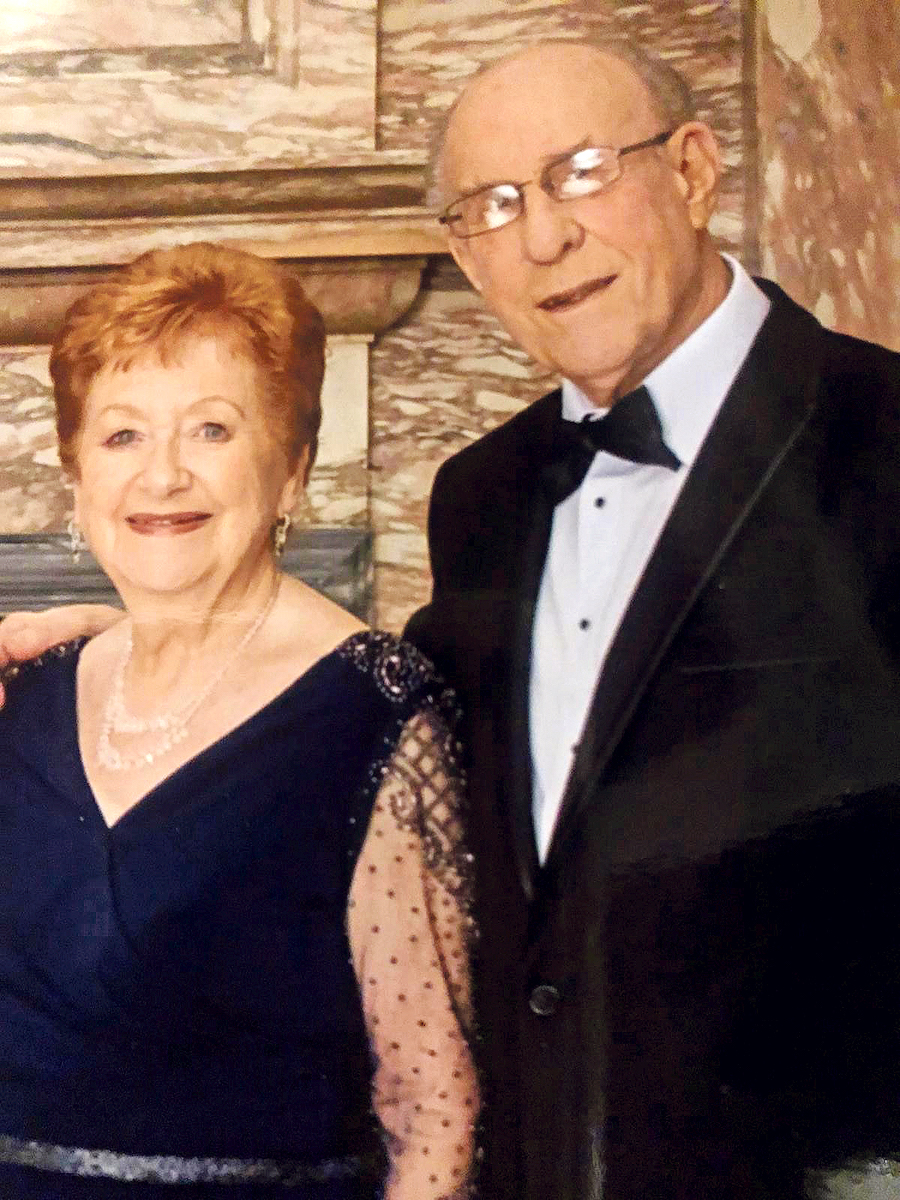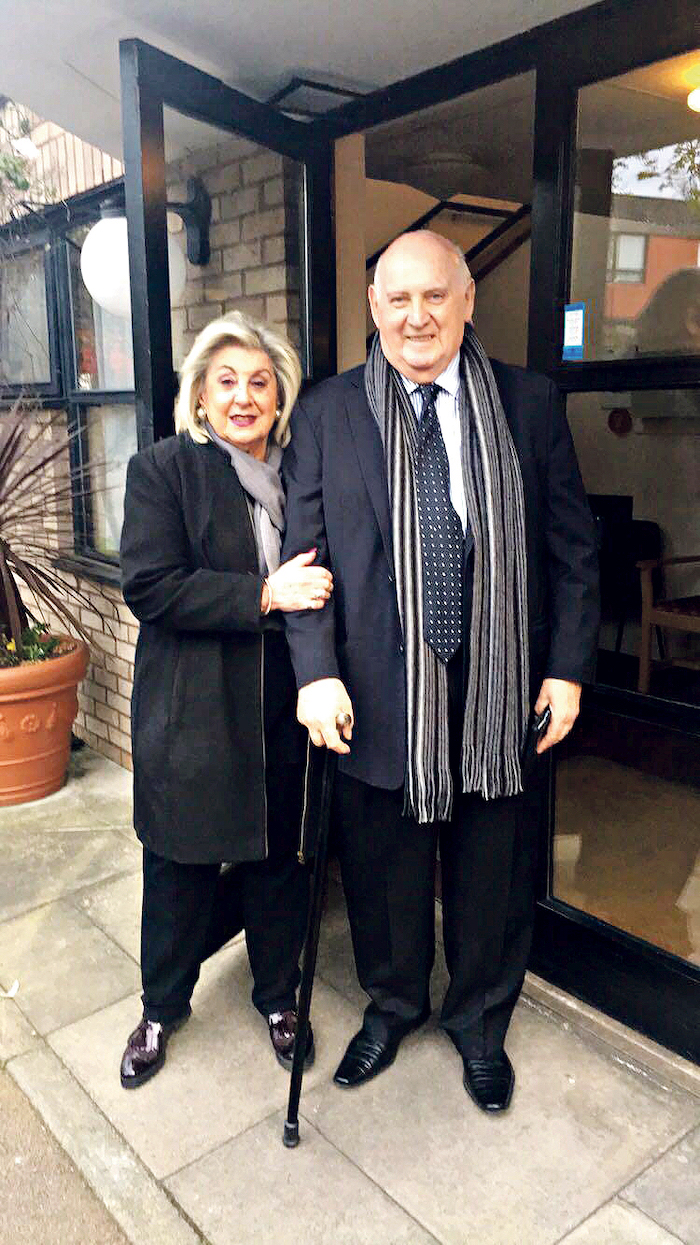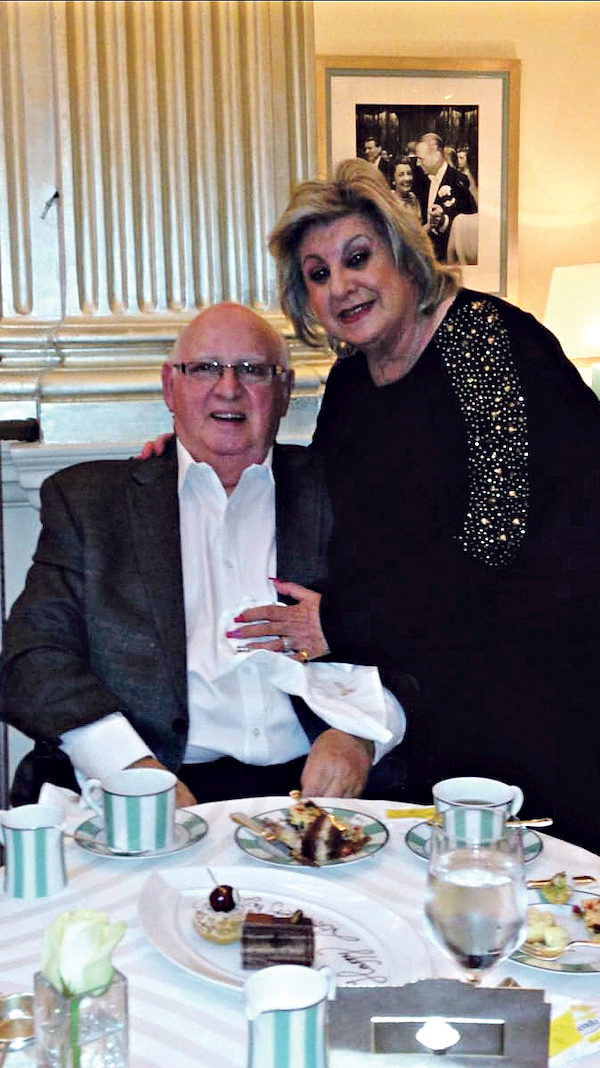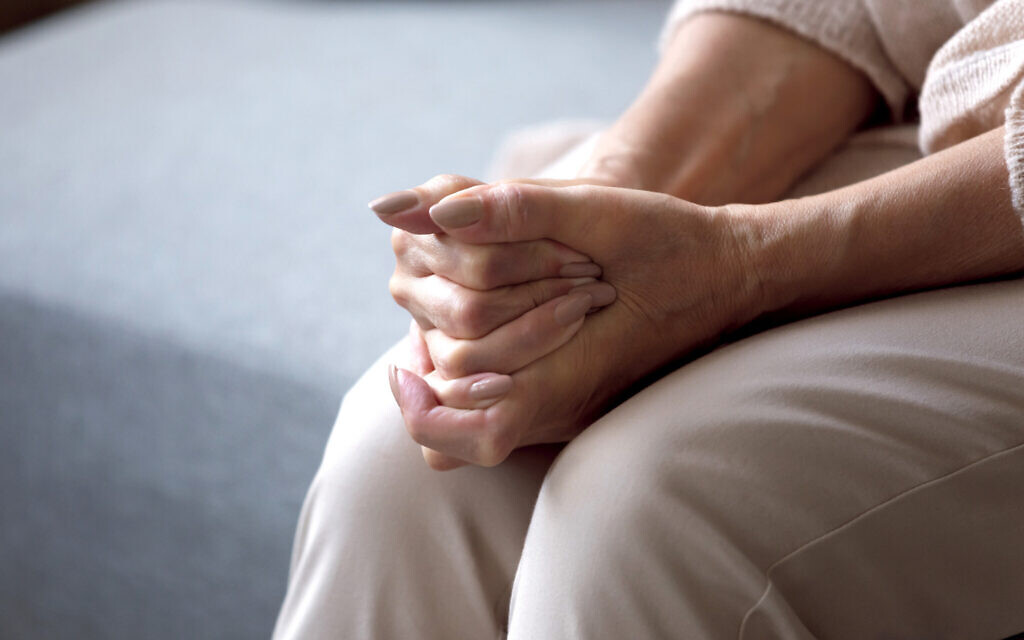Bereavement during the pandemic: ‘I was left alone with my grief’
Louisa Walters hears the experiences of two women who lost a partner during coronavirus, looking what support exists in the community, including from Jewish Care
“We went into lockdown and then I was left alone with my grief – but at a time like this you want to be with your close family and friends.”
More than a year on and during Dying Matters Awareness Week (which runs until Sunday), Jeanette Field is still coming to terms with losing her 83-year-old partner, Sidney Walters, during the pandemic. She was largely cut off from her support network right when she needed it.
And Jeanette is certainly not alone in her experience. According to charity
Independent Age, almost 300,000 people over the age of 65 have experienced the death of a partner since the start of the pandemic, a 17 percent increase on the average for the past five years.
Get The Jewish News Daily Edition by email and never miss our top stories Free Sign Up
Of these, an estimated 20,000 people will experience ‘complicated grief’,
a prolonged period of acute grief that occurs when the ‘normal’ grieving process is interrupted.
The Jewish Bereavement Counselling Service (JBCS), which helps those affected by grief, has reported three times more requests for counselling since the pandemic began.
“The grieving process has been abnormal, so we have had to adapt our offering [online] to suit,” explains Trisha Curtis, who runs JBCS.
“All the customs that are traditionally in place to support people have simply not been there. In many cases, people could not even be with their partner while they were dying – the last time they may have seen them is when they were being put into an ambulance. This is very traumatic.”
Jeanette, 82, recalls how, after Sidney’s funeral – which took place just days before the first national lockdown – she returned home, shut the front door and barely saw another soul for months.

She and Sidney had met at a Jewish Care bereavement group, having each lost their spouse to cancer.
“I thought that, having been through this before when my husband died, I would cope better. But it was just as hard, and then some, because with so much time on my hands, all the memories from the first time came flooding back.”
- READ MORE – OPINION: Difficult but necessary conversations about end of life
Jeanette’s children did her shopping and made doorstep visits, and even though she had no physical contact with them, they got her through the darkest days.
“Without them, I wouldn’t be here,” she says. One of her close friends, who lives round the corner, lost her husband the day after Sidney died. “We would have been such a support for each other if only we could see one another, but we just spoke on the phone.”

Her sentiments echo those of Jeannette Bryer, 81, whose husband of 61 years, Alan, died following a short battle with cancer.
Just months earlier, the couple had received a card from the Queen for their diamond wedding, but they were never able to celebrate their milestone anniversary owing to Alan’s illness.
He was cared for at a hospice during his last days and, fortunately, Jeannette and her daughter were able to stay there with him.
Reflecting on his passing during a time of Covid restrictions, Jeannette says: “I didn’t miss the shiva – I missed Alan. I cry every time I talk about him, so not having a shiva saved me a few more tears.”
While she formed a bubble with her daughter and granddaughter, being cut off from her wider circle of friends and relatives has been especially hard.
“Alan and I were a busy, sociable couple, always out and about. We loved being out together – this was our time,” she says. “I haven’t been able to see anyone since he died and this has made things so much worse. Being stuck at home on my own has given me too much time to think and dwell on things.
“I have a friend in my apartment block who also lost her husband and we speak on the phone, but we haven’t been able to get together.”
When restrictions are lifted next week, one of the first people Jeannette wants to see is Alan’s sister, to whom she is very close. “Alan’s family are part of him and I really need to see them,” she adds.
Despite being cut off physically from loved ones, Jeanette Field has found respite in playing bridge online.
“I play five nights and three afternoons a week,” she says. “At first, it was difficult playing with a new partner but needs must. I’m proud of myself for getting to grips with the technology. I don’t want to go out at night on my own, so I will carry on playing online.”

Meanwhile, a friend put Jeannette Bryer in touch with Jewish Care’s new Supportive Communities’ Knit, Stitch and Natter group, which has been taking place over Zoom and has proven a huge tonic for her grief.
“I’m knitting twiddle muffs for people with dementia and it’s enjoyable because you can add pretty little accessories to make them look really nice,” she says. “If I’m feeling down, I bring out the knitting. Although nothing takes away the feelings of sadness and loneliness, it is really therapeutic and can distract me for a while.”
Jeannette has also dropped into Jewish Care’s Chatty Café (on Zoom), which she and Alan used to attend together in person before the pandemic.
As restrictions ease, those who are grieving should soon be able to see loved ones again, while communal leaders anticipate having to provide support to those who wish to ‘mourn properly’.
“It was challenging and emotionally draining at times to see so many families standing bereft in the stillness of the open air of the cemetery,” says Rabbi Yitzchak Schochet of Mill Hill United Synagogue.
“I believe many families did not have the right opportunity to grieve, and conversations with them reflect a sense of surrealism as it was all so sudden and all too often without an opportunity to say goodbye. As we return to some semblance of normality, it will hit once more, because life will never be quite ‘normal’ for them again.”
Rabbi Debbie Young-Somers of Edgware & Hendon Reform Synagogue says: “Technology has enabled people to grieve together in some form, but it’s really important that, when restrictions are lifted, we rabbis provide a space and a place for them to mourn properly and to support each other.”
- For advice and support, contact Jewish Care Direct helpline: 020 8922 2222 or email helpline@jcare.org; or Jewish Bereavement Counselling Service: 020 8951 3881, jbcs.org.uk

Thank you for helping to make Jewish News the leading source of news and opinion for the UK Jewish community. Today we're asking for your invaluable help to continue putting our community first in everything we do.
For as little as £5 a month you can help sustain the vital work we do in celebrating and standing up for Jewish life in Britain.
Jewish News holds our community together and keeps us connected. Like a synagogue, it’s where people turn to feel part of something bigger. It also proudly shows the rest of Britain the vibrancy and rich culture of modern Jewish life.
You can make a quick and easy one-off or monthly contribution of £5, £10, £20 or any other sum you’re comfortable with.
100% of your donation will help us continue celebrating our community, in all its dynamic diversity...
Engaging
Being a community platform means so much more than producing a newspaper and website. One of our proudest roles is media partnering with our invaluable charities to amplify the outstanding work they do to help us all.
Celebrating
There’s no shortage of oys in the world but Jewish News takes every opportunity to celebrate the joys too, through projects like Night of Heroes, 40 Under 40 and other compelling countdowns that make the community kvell with pride.
Pioneering
In the first collaboration between media outlets from different faiths, Jewish News worked with British Muslim TV and Church Times to produce a list of young activists leading the way on interfaith understanding.
Campaigning
Royal Mail issued a stamp honouring Holocaust hero Sir Nicholas Winton after a Jewish News campaign attracted more than 100,000 backers. Jewish Newsalso produces special editions of the paper highlighting pressing issues including mental health and Holocaust remembrance.
Easy access
In an age when news is readily accessible, Jewish News provides high-quality content free online and offline, removing any financial barriers to connecting people.
Voice of our community to wider society
The Jewish News team regularly appears on TV, radio and on the pages of the national press to comment on stories about the Jewish community. Easy access to the paper on the streets of London also means Jewish News provides an invaluable window into the community for the country at large.
We hope you agree all this is worth preserving.
-
By Laurent Vaughan - Senior Associate (Bishop & Sewell Solicitors)
-
By Laurent Vaughan - Senior Associate (Bishop & Sewell Solicitors)
-
By Laurent Vaughan - Senior Associate (Bishop & Sewell Solicitors)
-
By Laurent Vaughan - Senior Associate (Bishop & Sewell Solicitors)






















